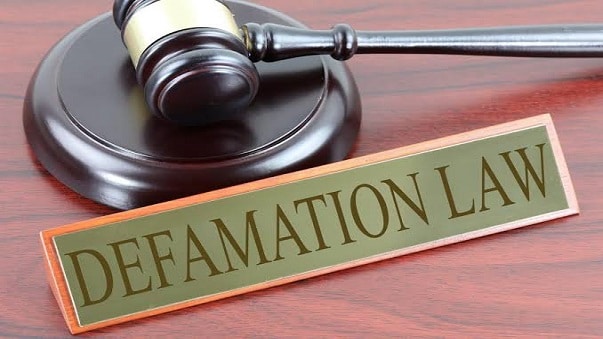Introduction
Defamation is a legal concept that protects the reputation of an individual or entity from false statements that harm their character or standing in the community. According to Black’s Law Dictionary, the term defamation is defined as “The offence of injuring a person’s character, fame, or reputation by false and malicious statements.”
Forms of Defamation
There are two forms of defamation, libel and slander which are discussed as follows:
Libel refers to the act of defamation through written or printed words, pictures, or any other form that can be visually represented. The defamatory statement is permanently recorded and generally published in newspapers, magazines, books, or online platforms. Since libelous statements have a lasting presence, they are considered more harmful. On the other hand, slander occurs when defamatory statements are spoken or communicated through gestures, signs, or any other non-permanent form. Slanderous statements are typically transient and might include oral remarks, speeches, or conversations. Due to their non-permanent nature, slanderous statements are generally considered less damaging than libel.
What are the kinds of defamation?
- Civil Defamation: It refers to defamation cases that are pursued as a private legal action by the aggrieved party seeking compensation for the harm caused to their reputation. It is primarily a matter of civil law. In a civil defamation case, the burden of proof lies with the plaintiff, who must demonstrate that the defendant made false statements that caused harm to their reputation.
- Criminal Defamation: It involves the prosecution of individuals criminally for making defamatory statements and the penalty for criminal defamation may include fines and imprisonment. In a criminal defamation case, the intention to defame another person is necessary which means the allegation should be made with the intent to defame or at least with the knowledge that the publication of such a statement is likely to defame another person.
What are the essentials of defamation?
The requirements for establishing a case of defamation are mentioned as follows:
- The statement must be defamatory and can be in the form of spoken or written words, signs, gestures, or any other means of communication. It is important that the defamatory or false statement is factually untrue and not a valid expression of opinion. Statement validity is determined by how the public as a whole perceives it.
- The defamatory statement made should refer to the plaintiff and he should prove the same. The statement must have the potential to harm the reputation of the person or entity being defamed. The defendant will only be liable for the statement if the plaintiff proves that the published statement referred to him.
- The statement must be communicated (published) to a third party, someone other than the person being defamed. It can be shared orally, in writing, through social media, or any other form of communication either verbal or non-verbal. Even a single person hearing or reading the statement can constitute publication.
Defences
In India, there are various defenses available to individuals facing defamation claims whereas the availability and applicability of these defences vary depending on the specific circumstances of the case. Some of the defences against the defamation claims are discussed as follows:
Truth: It is an absolute defence against defamation. If the statement in question is factually accurate and can be proven to be true, it can serve as a valid defence.
Privilege: Certain statements made under specific circumstances may be protected by privilege.
Absolute Privilege: Statements made in the course of judicial or legislative proceedings, such as by judges, witnesses, or lawyers during court proceedings or statements made in Parliament, enjoy absolute privilege.
Qualified Privilege: It applies to statements made in good faith and without malice by individuals who have a legitimate interest or duty to communicate the information to others.
Fair Comment: It is a defence that applies to statements of opinion rather than statements of fact.
Reports: It has been defined under Section 499 of the IPC that “It is not defamation to publish a substantially true report of the proceedings of a Court of Justice, or of the result of any such proceedings.”
Defamation under Indian Law
Defamation is a criminal offense under the Indian Penal Code (IPC). Section 499 of the IPC defines defamation and provides the essential elements required to establish a defamation case. Also, it highlights various exceptions or defences of defamation.
Written by Adv Rohit Yadav


Always delivering international quality.
how to buy generic lisinopril no prescription
A trusted name in international pharmacy circles.
I’m impressed with their commitment to customer care.
gabapentin pills
They understand the intricacies of international drug regulations.
Their flu shots are quick and hassle-free.
online lisinopril prescription
Always attuned to global health needs.
The staff ensures a seamless experience every time.
where to buy generic clomid price
I always feel valued and heard at this pharmacy.